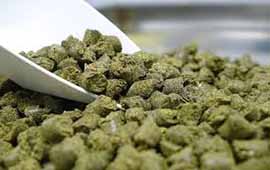Soy is one of the main crops grown by farmers in the EU.
Despite the lack of large own sown areas, local farmers are trying to use the maximum amount of land for growing this crop, since it is used not only to obtain useful oil. Soy is the main source of biofuels and is also used to feed livestock as a protein feed. At the same time, it is very important for local farmers that soybeans are grown without the use of genetically modified products, since such a crop is more beneficial for both humans and animals.
What factors affect the yield of soybeans
The yield of soybeans depends on factors such as favorable soil, sufficient water and good care. It is worth noting that the EU has recently been increasingly thinking about reducing the import of this product, so as not to increase carbon dioxide emissions into the atmosphere during its transportation to EU countries. In particular, it is planned that after a reduction in imports, CO2 emissions into the atmosphere will decrease by 77%. That is why local farmers are trying to grow more of their own product. Nevertheless, even taking these factors into account, soybean imports from other countries, for example, from Ukraine, will continue to exist, especially if local farmers adjust to the requirements of the European market. In particular, it is important to grow glyphosphate-resistant soybeans, which will not be carcinogenic to humans, and to confirm this with appropriate documents that indicate the level of seed contamination. In addition, it is very important not to use harmful substances for treating the soil and seeds of a crop during cultivation, since in Europe they are very strict with all indicators of the quality of this crop.
Soybean yield in 2020
What kind of soybean crop were able to harvest EU farmers in 2020? Note that in 2020, yields were affected not only by the coronavirus pandemic, but also by an unprecedented drought, which greatly damaged the yield indicators for farmers around the world, and, of course, also affected the yield of soybeans. Europe was no exception, and in 2020 local farmers were able to boast only 2.63 million tons of these products, while the share of processing reached 16.4 million tons (+ 1.4% annually). According to Oil World statistics, in 2021, the EU soybean harvest will reach 2.84 million tons, and the import of this crop will decline to 16 million tons.
Analysts predict that the demand for soybeans will continue to grow due to the rapeseed shortage. Despite the reduction in imports, Europe will continue to import legumes from the territory of Ukraine, and, possibly, will slightly reduce imports from other, more distant countries, for example, from India and China. Therefore, it is important for Ukrainian farmers to continue to monitor the quality of the grown products, and to know all the EU requirements for the quality of beans in order to continue successful cooperation in this direction.






